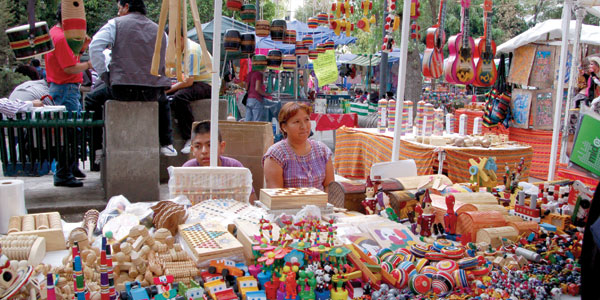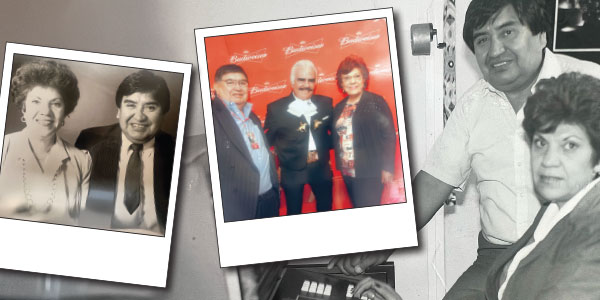
Regresar a México me llena de vida y, por alguna razón, siempre creo que voy a ver grandes cambios. Pero, casi siempre me quedo esperando.
Tengo mi rutina para regresar. Mi primera parada, muchas veces, es para comprar unos churrumais — frituras de maíz con limón y chile — o para comerme unos tacos al pastor. Eso me devuelve a mi adolescencia y al país que dejé. Me fui de México hace 33 años, pero México no se ha ido de mí.
Mientras más tiempo paso fuera de México, más aprecio lo que dejé. En mi última visita vi montones de familias, de la mano, paseando, regalándose frecuentes gestos de cariño (creo que los niños mexicanos son de los más apapachados y besados del mundo). Caí en comidas largas, sin prisa y con sobremesa. En México la comida es un ritual en que el alma y la boca se entrelazan como sopa de fideos.
Lo que más me gusta de México son sus intangibles, esas cosas que no se pueden tocar pero que te alimentan por dentro. En México nunca me he sentido solo. En cambio, la vida en Estados Unidos puede ser muy solitaria para los inmigrantes, sobre todo en Navidad y en días de fiesta.
Me gustan las fiestas mexicanas que rompen con la rutina — por algo les llaman “reventones” — y el uso del humor para balancear momentáneamente nuestras desigualdades. Criticar, sí, es una forma de querer a México.
Admiro esa sana y clara distancia del mexicano con sus gobernantes y con sus jefes. No les creen nada. Antes dudábamos del tlatoani azteca y de los virreyes españoles. Hoy dudamos del presidente y de los “mirreyes” (ese grupito de ricos y prepotentes que ahorcan al resto del país).
Después de tantos sexenios de abusos, escándalos y engaños, México se ha convertido en un país de incrédulos. Y a mí, eso me parece muy saludable; todo cambio se inicia sospechando de la autoridad, de las tradiciones y de las conductas aprendidas.
Pero ¿viene el cambio?
“En México nunca pasa nada”, me dijo un amigo y corresponsal extranjero afincado en el país hace varios años. Entiendo por qué lo dice. Más del 98% de los crímenes permanece en la impunidad, según la Comisión Interamericana de Derechos Humanos. Pero en México, sí están pasando cosas.
Pasan cosas — para robarme la frase del periodista colombiano Julio Sánchez Cristo — cuando muchísimos mexicanos ya no le creen a su presidente, Enrique Peña Nieto, y lo dicen en la calle y en las redes sociales. ¿Cómo creerle cuando él y su esposa le compran una casa de $7 millones de dólares a un contratista gubernamental?
Gracias a los llamados Papeles de Panamá, ahora sabemos que ese contratista — Juan Armando Hinojosa Cantú, dueño del grupo Higa — envió $100 millones de dólares de su fortuna en paraísos fiscales poco después que se inició la investigación de la Casa Blanca mexicana. (¿Habrá ahí algo que investigar don Virgilio?)
Pasan cosas en México cuando — con un diario pase de lista — no olvidamos a los 43 jóvenes de Ayotzinapa. ¿Y cómo resaltar lo positivo cuando ha habido 52 mil muertes violentas en los últimos tres años y el de Peña Nieto podría ser el sexenio más violento de nuestra historia moderna? Veo con esperanza las denuncias y protestas de muchos mexicanos indignados y frustrados. El mensaje es claro: No nos vamos a dejar.
Algunos creían que esa indignación y frustración se convertiría en una pacífica rebelión ciudadana, obligaría a renunciar a altos funcionarios y daría un golpe de timón al país. Por ejemplo, el primer ministro de Islandia se apartó de su puesto por acusaciones de corrupción tras la publicación de los Papeles de Panamá. Pero en México, todo sigue igual. Nadie renunció tras las denuncias de la Casa Blanca, ni de la fuga del Chapo, ni de las matanzas de Ayotzinapa y Tlatlaya.
Hay grandes cambios en Guatemala, Argentina, Brasil y Venezuela. Y millones de mexicanos se preguntan ¿cuándo nos toca a nosotros? Quizá nuestra fuerza radica más en resistir que en exigir. ¿Por qué no aceptar la creación de una Comisión Internacional contra la Impunidad en México, dependiente de Naciones Unidas, al igual que se hizo en Guatemala? Sería un buen primer paso.
Sí, ya sé. En México siempre da la impresión de que algo está a punto de reventar… y no revienta. Pero lo viejo y lo corrompido, no acaban de morir.
Por eso, hace varias primaveras que estamos esperando la primavera mexicana.
(Jorge Ramos, periodista ganador del Emmy, es el principal director de noticias de Univisión Network. Ramos, nacido en México, es autor de nueve libros de grandes ventas, el más reciente de los cuales es “A Country for All: An Immigrant Manifesto”.)
________________________________________________________________________________________________________
Waiting for the Mexican Spring
By Jorge Ramos
MEXICO CITY — Coming back to Mexico always fills me with vitality and hope. Whenever I return, I feel like the country is on the verge of big change. But, inevitably, the change never arrives.
I have a routine when I visit Mexico. My first stop is usually to buy some Churrumais — corn snacks accented with lime and chili — or to get some tacos al pastor. The food takes me back to my teenage years and the country I left behind 33 years ago. But while I may have left Mexico, Mexico has never left me. And the longer I am away, the more I appreciate what I left behind.
During my last visit, I saw a lot of families walking hand in hand, strolling along, frequently lavishing affection on each other. (I think that children in Mexico are among the most kissed and hugged in the world). I also enjoyed some wonderful meals and unhurried talks over coffee. In Mexico, meals are a ritual where soul and flavor intertwine.
What I like most about Mexico are the intangibles — those things that you can’t touch but that feed your humanity. For instance, I’ve never felt lonely in Mexico. In the U.S., on the other hand, life can be quite lonesome for immigrants, especially during Christmas and other holidays. Also, I love the way that my fellow Mexicans use our particular brand of humor — through Internet memes, cartoons and double entendre — to briefly balance out inequities in society. Criticizing Mexico has always been a way to show you love it.
I also admire the healthy distance that Mexicans keep between their rulers and themselves. They don’t just blindly believe whatever their leaders tell them. From the Aztec Tlatoani to the Spanish viceroys to the modern “mirreyes” — the group of rich, entitled Mexicans who are now suffocating the country — our people have always questioned the motivations of people in power. In recent times, after so many presidential administrations rife with scandal, deception and abuses of office, Mexico has understandably become a country of nonbelievers. And I consider such skepticism to be healthy for the nation — change, after all, begins by questioning authority and traditions.
But, when will change finally come to Mexico?
“Nothing ever happens in Mexico,” a foreign correspondent and friend once told me. I know what he means. According to the Inter-American Commission on Human Rights, more than 98% of all crimes go unpunished in Mexico. But it might be time for things to start happening.
These days many Mexicans just don’t buy much of what their president, Enrique Peña Nieto, is telling them. Can you blame them? Would you believe a president after he and his wife bought a $7 million house from a government contractor? According to the so-called Panama Papers, the contractor — Juan Armando Hinojosa Cantú, owner of the Higa Group — sent $100 million to tax havens outside of the country after inquiries into the house sale began. Perhaps it’s time to launch a new investigation?
And can you blame Mexicans for not believing Peña Nieto after the government hasn’t solved the nearly 2-year-old case of the 43 disappeared college students from Ayotzinapa? How can the president highlight the positive when Mexico has recorded more than 50,000 violent deaths in the last three years? Peña Nieto’s administration could be the most violent administration in recent history.
Judging by the outrage expressed on social media, Mexicans are tired of being pushovers. Some observers sense a growing frustration that could soon lead to a peaceful citizen revolt, forcing the dismissal of senior officials and a change in direction for Mexico. Many looked to the recent resignation of Iceland’s prime minister, Sigmundur Davío Gunnlaugsson, and were inspired by the public’s righteous anger after the Panama Papers exposed his financial chicanery.
But in Mexico, no officials have stepped down — not after the escape of Joaquin “El Chapo” Loera from prison, not after the disappearances in Ayotzinapa, not after the massacre of 22 unarmed civilians in Tlatlaya at the hands of soldiers.
Mexicans have seen political disruption take place recently in Guatemala, Argentina, Brazil and Venezuela, and they’re wondering when their turn will come. Perhaps their strength lies more in resisting than in insisting. Perhaps a good first step would be the creation of a U.N.-backed commission against corruption in Mexico, just like the one that was set up for Guatemala. Perhaps that would be the thing to spark change.
In Mexico, there’s always a sense that the dam is about to burst, but it never does. The old and corrupt ways are taking too long to die. We’ve been waiting for the peaceful revolt of a Mexican spring to arrive for many springs.










